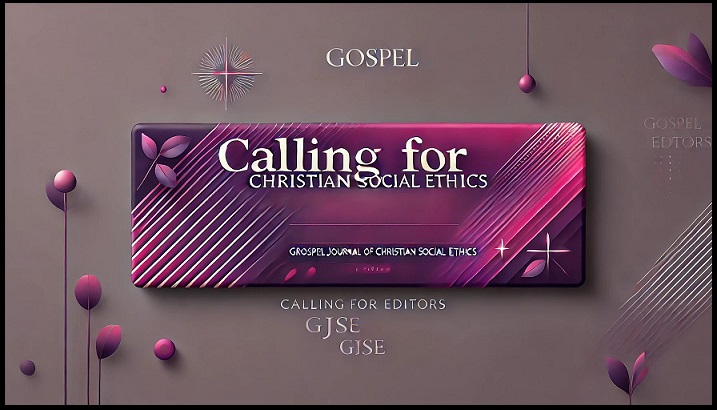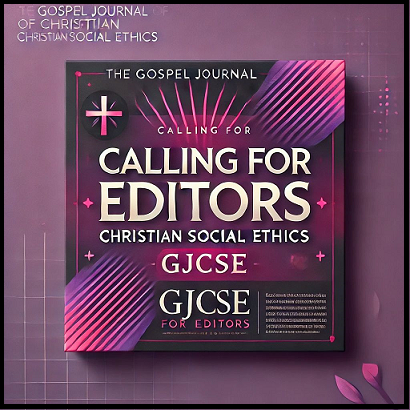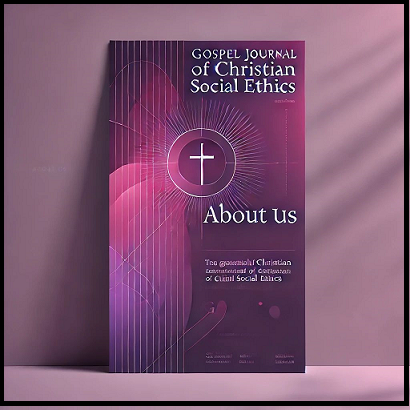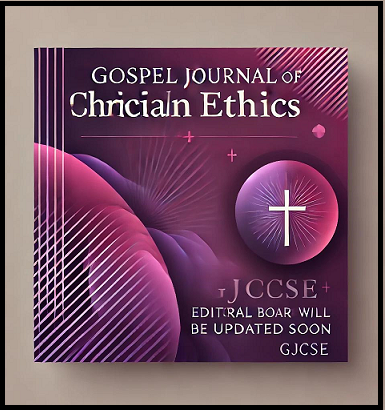Editorial Policies and Practices
The Gospel Journal of Christian Social Ethics (GJCSE) is dedicated to fostering thoughtful and rigorous scholarship at the intersection of faith, ethics, and social engagement. Our objective is to advance understanding and dialogue on how the teachings of the Gospel can inform and shape ethical practices in addressing contemporary social issues.
I. Objective of the Journal
Rooted in Christian theological traditions, the journal seeks to:
GJCSE remains committed to publishing scholarly articles, editorials, and reviews that maintain the highest standards of academic rigor, intellectual integrity, and practical relevance. Our mission is to engage both the academy and the church in conversations that inspire action toward a more just and compassionate society.
II. Editorial Board
The Editorial Board comprises distinguished scholars with expertise in various fields of Christian Social Ethic, and related disciplines. The board is responsible for:
Editorial board members are selected based on their scholarly achievements, expertise, and commitment to Christian Social Ethics.
III. Review Process
All manuscripts submitted to the journal undergo a rigorous double-blind peer-review process, which includes the following steps:
1. Initial Screening: The editorial team reviews manuscripts to ensure they align with the journal’s scope and formatting guidelines.
2. Peer Review: Qualified reviewers with expertise in the relevant area evaluate the manuscript for originality, methodological rigor, clarity, and scholarly contribution.
3. Editorial Decision: Based on reviewers’ feedback, the editorial board makes one of the following decisions:
The review process typically takes 6-8 weeks.
IV. Reasons for Rejecting a Manuscript
Manuscripts may be rejected for the following reasons:
V. Procedures
Manuscript Submission and Processing
VI. Obligations of Authors
Authors are expected to:
VII. Obligations of Reviewers
Reviewers play a critical role in maintaining the journal’s academic integrity. They are expected to:
Contact Information
For further details or inquiries, please contact the Editorial Office at [editor_gjcse@gospeljournals.org].
The Gospel Journal of Christian Social Ethics (GJCSE) is committed to fostering a culture of academic excellence, transparency, and ethical scholarship in Christian Social Ethics. Thank you for your contributions and support.



